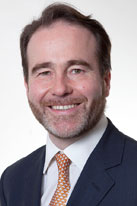Conservative PCC Drives Mental Health Crisis Service Overhaul
Staffordshire’s Conservative elected Police and Crime Commissioner Matthew Ellis will call for fundamental change to the way mental health crisis services are delivered across Staffordshire and Stoke-on-Trent when he meets with senior decision-makers this week.
Mr Ellis will hold the meeting following a conference in December which saw more than 200 local practitioners, third sector bodies and senior police officers come together to focus on making the system work better.
The catalyst for national change was a report commissioned by Mr Ellis in April 2013, which showed that around 20 per cent of total police time in Staffordshire and Stoke-on-Trent is spent dealing with mental health-related incidents. The ‘Staffordshire Report’ also made clear that a lack of the right support for people suffering from mental illness is a key reason why individuals end up in police cells instead of more appropriate facilities. It highlighted too that some individuals end up in the courts unnecessarily when they are ill, not criminals.
In 2012/13, 169 people with a suspected mental health condition were held in police cells rather than more appropriate facilities because none were available and a total of 659 individuals were Sectioned under the Mental Health Act and detained by police.
The ongoing work in Staffordshire comes at the same time as the Government published a mental health action plan containing 25 priorities for change called ‘Closing The Gap’ last week. The Commissioner has appointed a mental health lead to take the work forward in Staffordshire and increase the pace of business in this crucial area.
Mr Ellis will meet with leading figures from the NHS, Ambulance Service and local authorities on Friday, 31 January.
He said, “The system across Staffordshire and Stoke-on-Trent needs to work more collaboratively if we are to stop seeing people who are simply ill locked up in cells and also health and social care professionals, rather than police officers, looking after the needs of often highly vulnerable people.
“I hope this meeting will be a chance to look for changes that are needed so that money is used more efficiently in the right part of the mental health system to make sure people are supported better. It’s about ensuring the system fits better the needs of individuals with mental health challenges wherever they are in Staffordshire.
“This is not just about freeing up police time, although that’s important, but is about ensuring individuals don’t find themselves locked up in cells just because other more appropriate places are not available. Current arrangements are failing individuals who need support rather than being criminalised and it is costing more than needed because of inadvertent cost shunting from one public agency to another.
“Addressing the fundamental problems with the system as it is now could free up more resource to widen the support available for people and deal with issues earlier and more effectively for the individuals and for tax payers.
“Front line professionals are trying hard to make a system work on the ground that is obviously flawed at the highest design level locally. Funding for mental health sits with numerous different agencies including local authorities, different parts of the NHS and local GP groups.
“This is a challenge which is not being addressed as it needs to be. My plea is to join up ways of working and to use the funding available as a more integrated sector rather than in silos.”
As well as looking at how to change the system, the meeting will get the latest update on a new approach for mental health triage in Stoke-on-Trent and North Staffordshire. The Community Triage pilot is being funded by money from the PCC’s budgets and sees Staffordshire Police and North Staffordshire NHS working together to stop criminalising people who are mentally ill. Mental health professionals are on hand to give advice to police officers dealing with people in crisis who may have underlying mental health problems. It will lead to savings in police time, as it will mean people are given the support they need at the earliest point rather than having to go through the criminal justice system.
Councillor Alan White, Cabinet Member for Care with Staffordshire County Council said, “Mental health and wellbeing are everyone’s responsibility and the County Council is working to ensure that mental health is embedded in everything we do to deliver our aims that people in Staffordshire are able to access opportunities that allow them to lead healthy and independent lives, all of which help to improve mental wellbeing.
“However, where people do need support it is essential they are able to access the right response at the earliest possible stage to prevent problems escalating into a crisis, early intervention is always better. Mental health problems can be complex and we are working with all of our partners to bring together a shared vision that people will be able to access services when they need them.”


